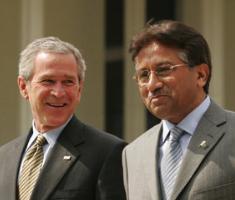THE EU TESTS ITS LEVERAGE -- Piero Fassino, the European Union's new special envoy for Myanmar, a.k.a. Burma, is likely to have an uphill battle to persuade that country's neighbors to go along with new EU sanctions against the Burmese regime. Last week, the European Union drew up a list of sanctions specifically targeting Burma's ruling junta, including blocking their exports of Burmese gems -- a key source of revenue for the leadership -- plus a Europe-wide travel ban, and curtailment of other trade. The aim is to pressure the junta to improve on the so far modest concessions made in response to the summer's opposition protests, which were violently crushed by the government. At the very least, Fassino hopes to persuade China, Japan, and the members of ASEAN (the Association of South East Asian Nations, consisting of Brunei, Cambodia, Laos, Indonesia, Malaysia, the Philippines, Singapore, Thailand, Vietnam, and Burma) to bring pressure on the junta to start reconciliation talks with opposition leaders, and to release political prisoners. In a way, Fassino's mission is a test of the European Union's political leverage in Asia. In May, the European Union signed a free trade agreement with ASEAN. EU trade with Asia as a whole -- including China and Japan -- accounts for one-fifth of the EU's world trade. But the Asians have been opposed to sanctions against Burma, and at their summit this week ASEAN leaders decided to steer clear of the Burmese situation. Nonetheless, Fassino said in Washington Monday, the European Union must make the effort. "It's a global world, and no conflict is local," he said. "Even something that happens 20,000 miles away can have an impact here. In a global world we are all responsible." FRIENDS AND FOES -- The weekend editions of both the Washington Post and the New York Times carried stories about how President Bush's personal relationship with Pakistan's Pervez Musharraf had complicated the administration's handling of the Pakistan crisis. It's not the first time that Bush's penchant for putting his dealings with world leaders on a personal basis has led him astray. What happened to looking into the eyes of Russian President Vladimir Putin and finding him "very straightforward and trustworthy?"
Corridors of Power: the EU’s Asian Leverage, Bali is the New Kyoto and More

